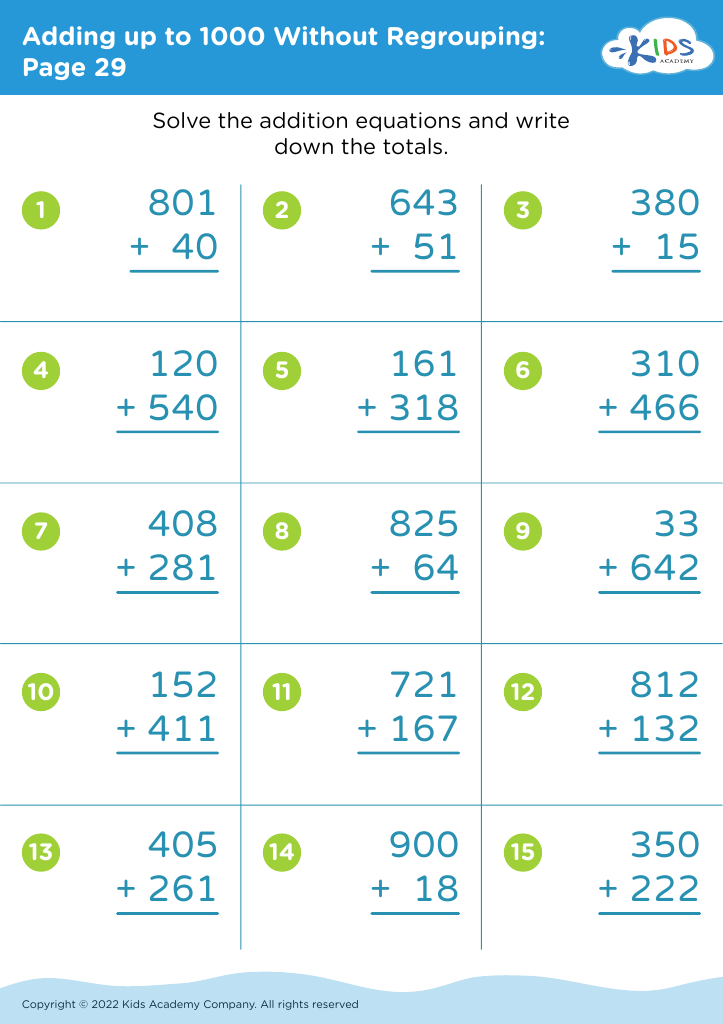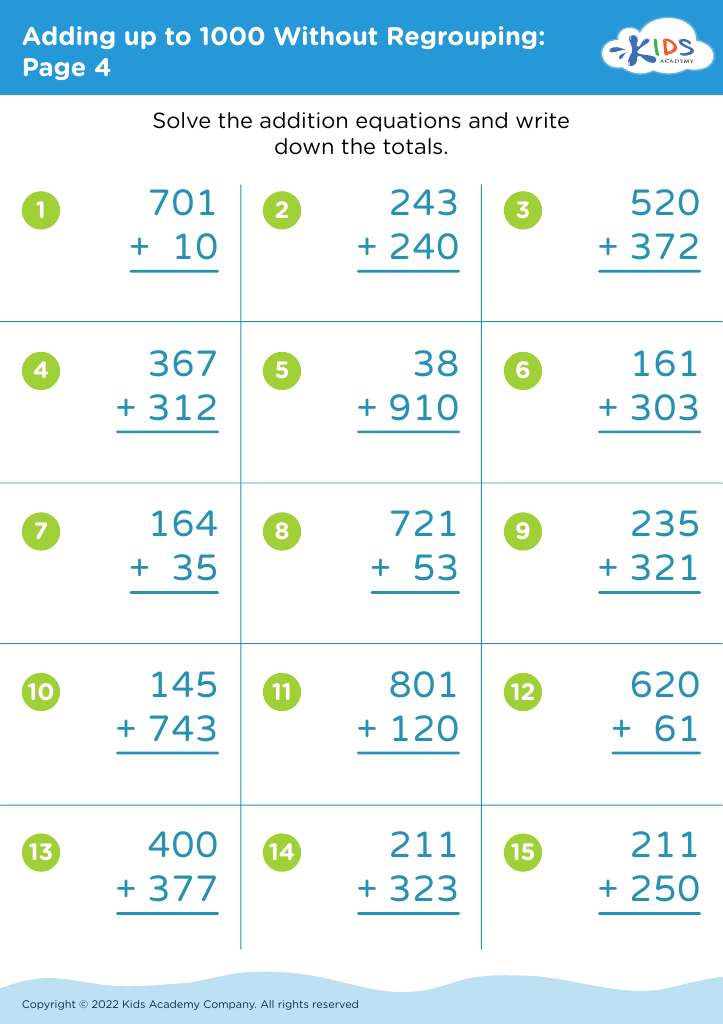Word Recognition Adding up to 1000 Worksheets for Ages 4-7
3 filtered results
-
From - To
Enhance your child's reading and numerical skills with our "Word Recognition Adding up to 1000 Worksheets" designed for ages 4-7. These engaging worksheets blend word recognition and math practice, helping young learners identify essential vocabulary while mastering addition concepts up to 1000. Our thoughtfully crafted activities encourage critical thinking and build confidence in both reading and mathematics. Perfect for homeschoolers or classroom use, these worksheets promote interactive learning, enabling children to understand words and numbers better. Download our printable resources today and watch your child develop essential skills while having fun with words and numbers in a dynamic and supportive environment!
Word recognition is a crucial skill for children aged 4-7 as it serves as the foundation for literacy and overall academic success. During these formative years, children are developing the ability to read fluently and with comprehension. Strong word recognition skills allow them to decode unfamiliar words, leading to enhanced understanding of texts and improved communication skills.
Parents and teachers should be particularly invested in fostering word recognition because it directly influences children's confidence in reading. When children encounter texts that they can read effortlessly, they are more likely to enjoy reading and practice it more frequently. This enthusiasm is vital for developing reading habits that will support lifelong learning.
Moreover, word recognition is linked to broader cognitive development. As children master sight words and other common vocabulary, they begin to make connections between spoken and written language, enhancing their overall language skills. Additionally, proficient word recognition aids in comprehension, critical thinking, and the ability to express ideas coherently.
In summary, focusing on word recognition during ages 4-7 not only prepares children for future academic challenges but also cultivates a love for reading, ultimately setting the stage for lifelong learning and success.














